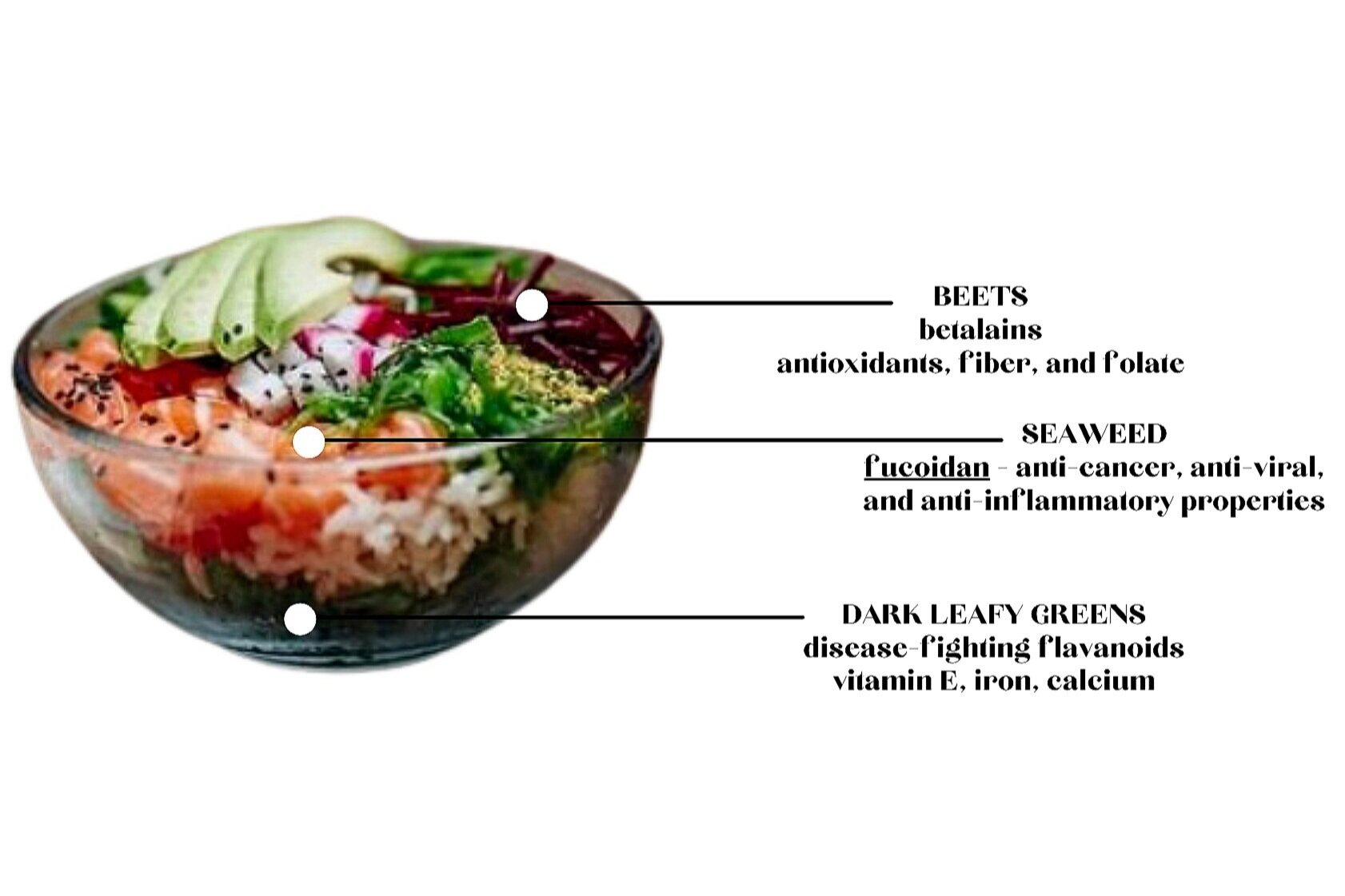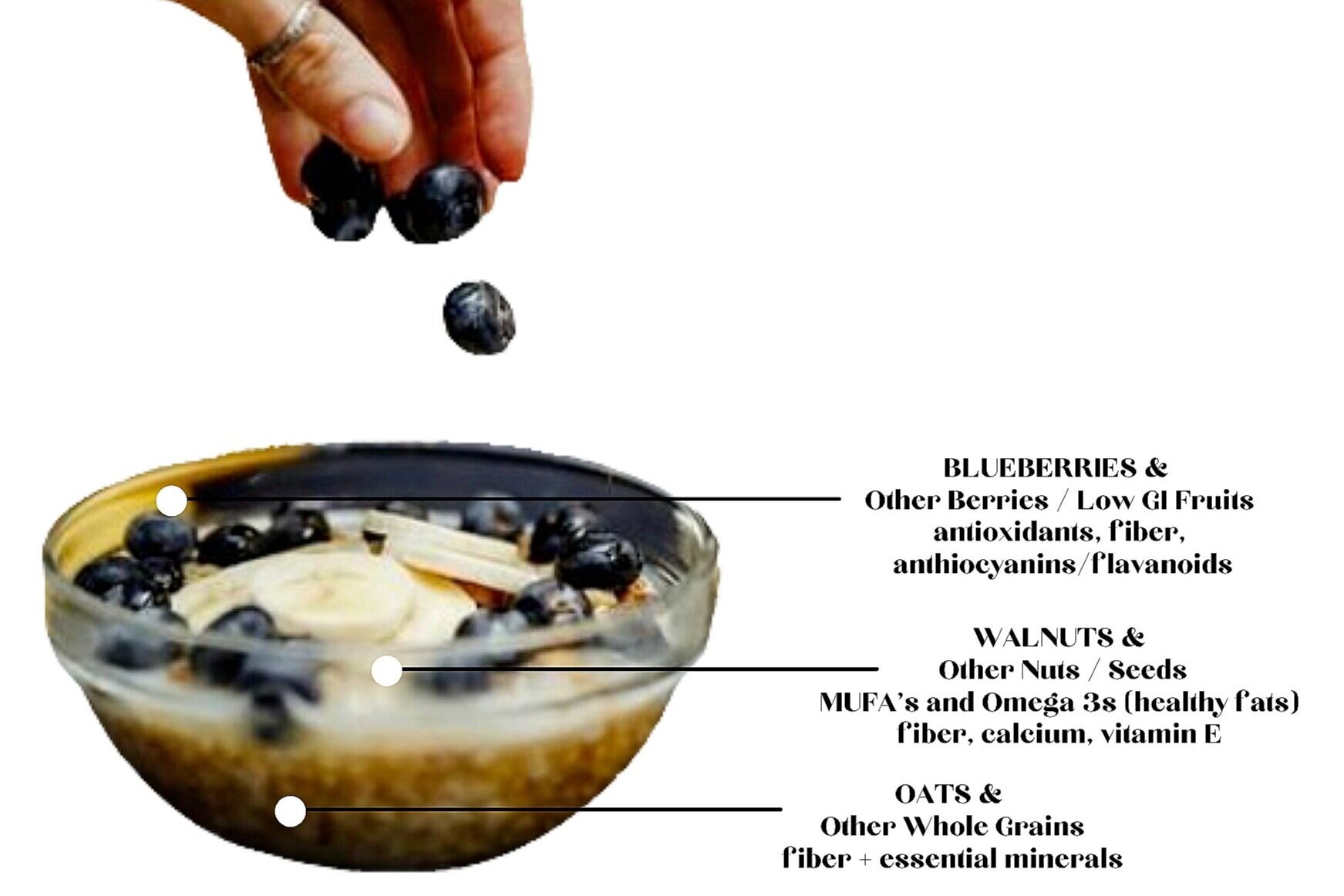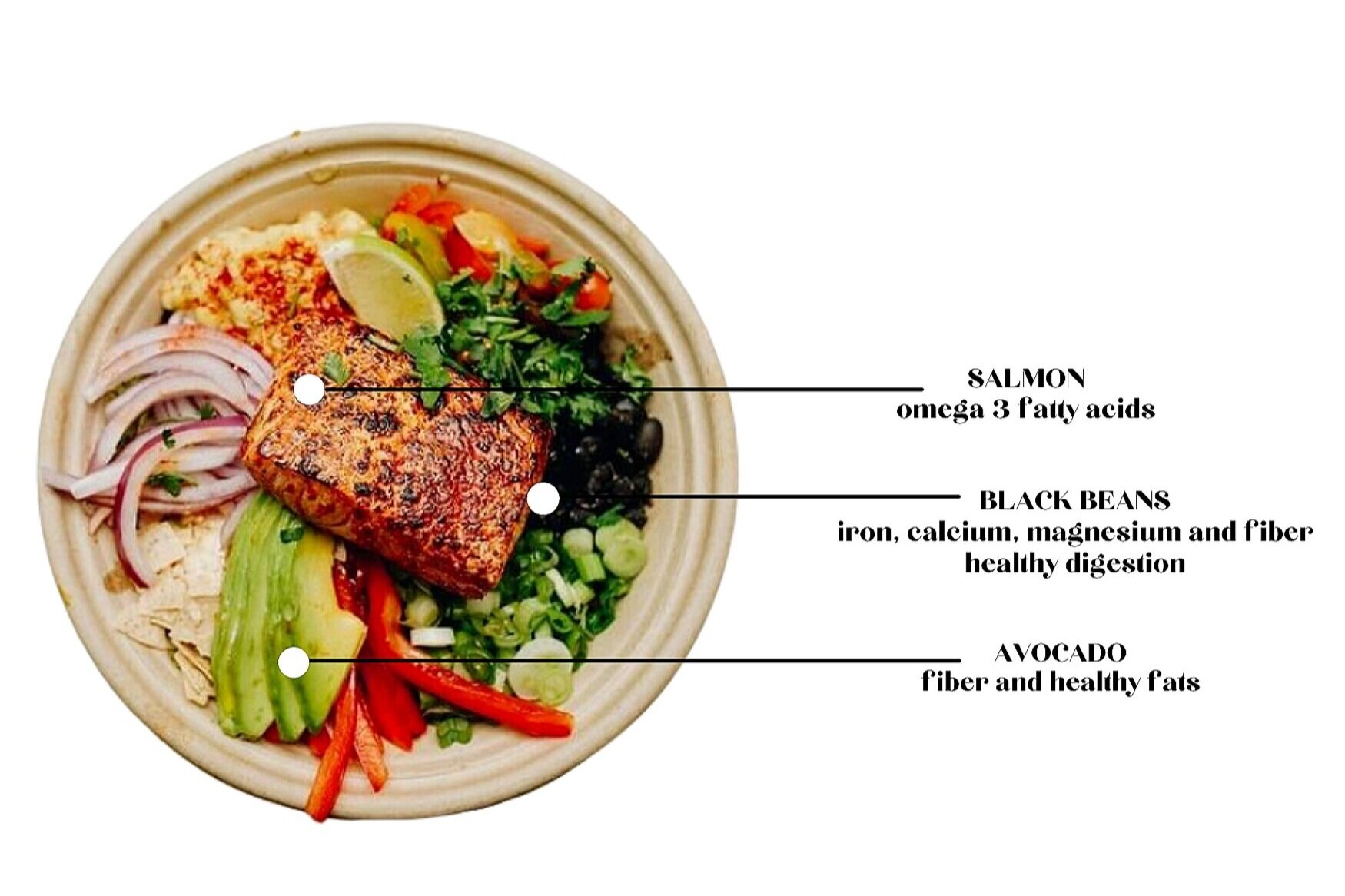Part II - The Fight Against Inflammation
(If you haven’t yet, check out Part I here for a rundown on the signs and symptoms of chronic inflammation.)
So now that you know a little bit about what causes inflammation, what can you do to combat it?
Basically, the reverse of everything you saw in the last post!
Inflammation is an ongoing battle. It’s not like a cold where you just take some medicine, rest for a couple days, and then you’re back to normal. It’s more about instilling healthy habits and routines than a quick fix.
To minimize inflammation for the long haul, work on the principles below. Try working on improving one or two, and eventually begin incorporating the rest based on what area of your life you feel could use the upgrade. Thankfully, a lot of them feed into the other, and, as you work on one, the others will fall into place.
Decrease your stress.
Mediation, journaling, breathing exercises, and yoga are all ways to train your body to better adapt to or handle stress. Try these first thing in the morning, starting with 5-10 minutes and working your way up. It may not feel like your doing much at first, but over time you’ll notice yourself feeling lighter throughout the day.
Get enough sleep.
Sleep is when our bodies recover. If you don't give your body the opportunity to recuperate, you can imagine why it’ll be hard to fight off inflammation. 7-9 hours a night is typically recommended for adults; however, the quality of sleep should not be overlooked. Below we’ve listed some ways to improve both!
Turn off your electronics at least an hour before sleep, invest in blue light blockers, or download flux on your devices. Blue light negatively impacts our ability to fall asleep by suppressing melatonin production and throwing off our sleep-wake cycle (a.k.a. circadian rhythm).
Make sure your room is cool, as dark as possible, and sound-proof. Since the latter isn’t usually possible, consider a sound machine or an app like Relax Melodies to help block out your noisy neighbors! Ear plugs are another option if all else fails.
Establish a nighttime routine. Nighttime routines help signal to your body that it’s time for bed. You can go so far as to implement activities like reading, journaling, or meditation; but even simple steps like showering, brushing your teeth, or a hot cup of tea can work, too! Especially in the beginning- just as long as it’s consistent.
And finally, limit your caffeine intake in the afternoon. Usually you’re ok before about 2 pm, but it depends on the person and your sensitivity to it. Listen to your body, and pay close attention to how it affects you through trial and error.
Limit your caffeine intake.
I know, I know. But you knew this one was coming. Caffeine isn’t inherently bad, but when consumed in excess it can negatively impact the adrenal glands and thyroid, throwing off hormones and therefore your whole system. Not to mention, it can disrupt your sleep if consumed too close to bedtime, as stated above. Double wammy.
Try switching out your afternoon cup o’ joe for a matcha latte or tea every once in a while - your body will thank you for it.
Be wary of environmental toxins.
They’re everywhere - in our air, our water, plastic, sprayed on our food… It’s very difficult to completely avoid these things, but there are a few things you can do to decrease exposure.
Check the ingredients of not only the food you consume, but the products your put on your body. Shampoo and conditioner, face and body wash, lotion, makeup, etc. can all carry toxic ingredients, and it really adds up if you’re not careful.
Use the dirty dozen list - prioritize these foods when purchasing organic to decrease pesticide consumption.
Reduce plastic use by investing in a reusable water bottle and glass Tupperware, as BPAs can leak into your food and drink when exposed to heat.
Use food as medicine.
Food is so much more powerful than we give it credit for. Our diet can have a SIGNIFICANT impact on levels of inflammation, for better or for worse. Here are some foods that help your body decrease and recover from inflammation.
Beets & Carrots:
Betalains and carotenoids
Antioxidants, fiber, and folate.
As found in: The Hustle and Faroe Monch Poké Bowls and Sushirritos, the Quest Juice, and the Mad Beets.
Seaweed:
Fucoidan - anti-cancer, anti-viral, and anti-inflammatory.
As found in: The Hustle and Faroe Monch Poké Bowls and Sushirritos.
Dark Leafy Greens:
Spinach, kale, arugula
Disease-fighting flavanoids
Iron, vitamin E, calcium
As found in: The Poké Bowls (Spinach), the Smooth Operator (Kale), and Macro Bowls (Mixed Greens).
Berries and other low GI fruits:
Blueberries, strawberries, apples
Anthocyanins, flavanoids, and fiber
As found in: The Violet Beauregarde Oatmeal (Blueberries), the Blueberry Bee Pollen Smoothie, and the Strawberry Patch.
Nuts and Seeds:
Walnuts, almonds, macadamias
Fiber, Omega 3 fatty acids + MUFAs
As found in: Violet Beauregarde Oatmeal (Walnuts), The Oasis (Hemp Seeds), and the Grab n’ Go Bowls (Housemade Grain Free Granola).
Whole Grains:
Oats, quinoa, buckwheat
Fiber + essential minerals
As found in: The OG / Violet Beauregarde / American Pie Oatmeals (GF Oats); Macro Bowls (Quinoa).
Fatty Fish:
Omega 3 fatty acids
As found in: Macro Bowls (Seared Salmon) and Poké Bowls (Raw Salmon).
Beans and Legumes:
Fiber, iron, calcium, magnesium
Healthy digestion
As found in: Macro Bowls (black beans; lentils).
Turmeric, Ginger, and Garlic:
Antioxidants
Anti-inflammatory and anti-viral compounds
As found in: The Immunity Shot, Golden Latte, and Rooted in Raleigh.
Lastly, supplement.
When in doubt, supplements can help if you’re having a hard time controlling inflammation with the aforementioned method. Our favorites include CBD (Hello Medicine Mamas!) and high quality fish oil. Here is a comprehensive list done by examine - an amazing site to look at for efficacy of supplements before purchasing (they stay sponsor-free so you know their intentions are pure and the studies they share are legit).
Did we miss anything?
We’d love to know - leave your top inflammation-fighting battle strategies below!









